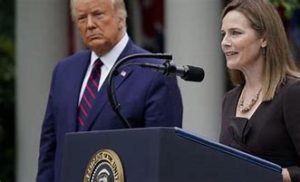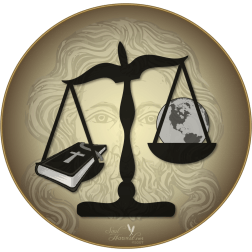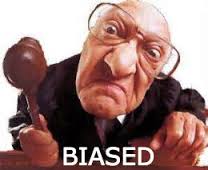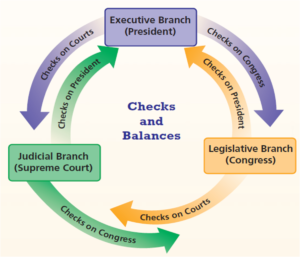Justice Amy Barrett’s Nomination, Judicial Independence and Religious Beliefs

Justice Barrett’s Religious Beliefs – Should Judges’ Personal Views Matter?
As expected, President Trump has nominated Justice Amy Coney Barrett to replace the late Justice Ruth Bader Ginsburg on the US Supreme Court. Her nomination is widely criticised.
One reason given for this opposition is that Justice Barrett is deeply religious. ‘So what,’ I say. In itself, religious belief or lack of it is and should be, irrelevant to determining whether a nominee is suitable for appointment as a Justice of the Supreme Court. Deeming Justice Barrett an unsuitable candidate purely because she holds deeply held conservative religious views, not only unlawfully discriminates against her on the grounds of religious belief, but also reveals ignorance, or at least a failure to acknowledge the appropriate role of judges in a democracy
 Just as defence lawyers do not have to approve of abortion in order to defend those offering abortion services, so judges do not have to personally favour legalised abortion to follow previous court decisions such as Roe v Wade 410 U.S. 113 (1973), in which the US Supreme Court declared that women’s access to abortions was protected by the US Constitution, rendering excessive restrictions on such access to be unconstitutional. In fact, judges are required to apply existing law to the case at hand. If in determining the applicable law a judge wishes to depart from a view of the law that had been applied consistently for a number of years by the highest court in the land, a judge must offer a very compelling legal reason for why the established view of the law should no longer be considered good law. The Judge’s personal beliefs of what is right and wrong do not provide sufficient justification for such a departure.
Just as defence lawyers do not have to approve of abortion in order to defend those offering abortion services, so judges do not have to personally favour legalised abortion to follow previous court decisions such as Roe v Wade 410 U.S. 113 (1973), in which the US Supreme Court declared that women’s access to abortions was protected by the US Constitution, rendering excessive restrictions on such access to be unconstitutional. In fact, judges are required to apply existing law to the case at hand. If in determining the applicable law a judge wishes to depart from a view of the law that had been applied consistently for a number of years by the highest court in the land, a judge must offer a very compelling legal reason for why the established view of the law should no longer be considered good law. The Judge’s personal beliefs of what is right and wrong do not provide sufficient justification for such a departure.
In democracies, courts determine and apply the law. In countries run by dictators, courts apply the law in conformity with the policies and wishes of the Dictator or ruling class/party. It is clear, even from his own remarks, that President Trump would rather not have an independent judiciary that may restrain his power and invalidate some of his actions. He has expressed admiration and envy for the unlimited power of dictators with whom he has personal and friendly relationships. Because he believes that he knows what is best for the country, he has no time for politicians who oppose him and is proud of having appointed so many federal judges because he expects that their view of the law is compatible with his agenda.
In the US, as in the UK and Australia, judges apply all manner of laws, many of which they personally disagree with. Our courts are not (and should not be) Judge Judy-style courts, in which the judge’s hunch determines who wins. Rule of law depends on an independent judiciary, laws being known in advance and being able to be relied on, and laws not being determined by the personal views of individual judges. In short, these fundamental principles dictate that judges should not be appointed (despite what Trump says) to change the law in accordance with their own personal beliefs.
Factors That May Make Justice Barrett an Unsuitable Nominee
 Moving on from the relevance of Justice Barrett’s religious beliefs, I turn to consider related issues, that appear to make the nomination of Justice Barrett unfortunate, or that may require her to recuse herself from participating in hearings addressing certain matters.
Moving on from the relevance of Justice Barrett’s religious beliefs, I turn to consider related issues, that appear to make the nomination of Justice Barrett unfortunate, or that may require her to recuse herself from participating in hearings addressing certain matters.
Justice Barrett is accused of mixing law and religion in her judicial work. Perhaps the most compelling criticism of her nomination, is that she is reported to have not only expressed her personal views on abortion but that she has also stated that the Supreme Court’s view in Roe v Wade should be overruled.
As we will no doubt hear during her Senate Confirmation Hearing, when she was a legal academic in the Catholic University of Notre Dame, Justice Barrett expressed her view on the constitutionality of the Supreme Court’s controversial decision in Roe v Wade. What needs to be considered is not only her view that Roe v Wade is wrong on legal grounds but also and perhaps more importantly that the decision is wrong because it is at odds with the teachings of the (Catholic) church. In addition, Justice Barrett is said to have urged her students to see their work as lawyers as part of a higher calling to do God’s will.
Bias Through Pre-judgment
Even if the stated reason for her views is purely legal, any reasonable person, particularly if aware of the reported facts surrounding her nomination, is likely to consequently have the expectation (certainly Trump does) that Justice Barrett’s abortion-related judicial opinions or judgments will reflect her previously expressed views on Roe v Wade. Available information suggests that in an abortion-related case a party appearing before Justice Barrett may be denied due process or natural justice. The reason is that Justice Barrett will not appear to be impartial but rather a judge who has prejudged the outcome.
 A judge is also expected to confine reasons for her or his decisions to the law as applied to the evidence and submissions, and not on extraneous personal views. This does not mean that when out of court judges cannot express their personal views on the law. Indeed, input from judges on how the law should be reformed is most valuable in the process of law reform. What it does mean is that judges should not substitute their views of what the law should be for what the law currently is. Judges cannot make statements reasonably capable of being seen as prejudgment, biased, prejudiced etc. Justice Barrett’s views on abortion law and some other issues affecting refugees and women, when linked to strong personal beliefs most certainly create that impression. However, this should not in itself stop her from being appointed but should disqualify her from deciding related cases. In such cases, she (and any judge recognising that bias and prejudgment are not confined to actual bias and prejudgment but importantly extend to apprehended bias) would be expected to recuse herself.
A judge is also expected to confine reasons for her or his decisions to the law as applied to the evidence and submissions, and not on extraneous personal views. This does not mean that when out of court judges cannot express their personal views on the law. Indeed, input from judges on how the law should be reformed is most valuable in the process of law reform. What it does mean is that judges should not substitute their views of what the law should be for what the law currently is. Judges cannot make statements reasonably capable of being seen as prejudgment, biased, prejudiced etc. Justice Barrett’s views on abortion law and some other issues affecting refugees and women, when linked to strong personal beliefs most certainly create that impression. However, this should not in itself stop her from being appointed but should disqualify her from deciding related cases. In such cases, she (and any judge recognising that bias and prejudgment are not confined to actual bias and prejudgment but importantly extend to apprehended bias) would be expected to recuse herself.
Apprehended Bias
 In publicly stating that he was nominating Justice Barrett in order to ensure that a majority of Supreme Court Justices was able to make certain decisions, President Trump has arguably created the impression that Justice Barrett is being appointed to make rulings favouring his agenda. I suggest that consequently, a reasonable person may form the view that Justice Barrett is not being nominated to be an impartial judge, but because previously she has expressly or impliedly indicated that she will adopt a stance consistent with the wishes of the President who appointed her, or in accord with her personal views and beliefs.
In publicly stating that he was nominating Justice Barrett in order to ensure that a majority of Supreme Court Justices was able to make certain decisions, President Trump has arguably created the impression that Justice Barrett is being appointed to make rulings favouring his agenda. I suggest that consequently, a reasonable person may form the view that Justice Barrett is not being nominated to be an impartial judge, but because previously she has expressly or impliedly indicated that she will adopt a stance consistent with the wishes of the President who appointed her, or in accord with her personal views and beliefs.
That Justice Barrett states, and will no doubt reiterate in her confirmation hearing, that she should not be seen as anyone’s judge and that she will make her decisions according to the law, does not alter the conclusion. Even if Justice Barrett establishes the absence of actual bias she is highly unlikely to dispel the public perception of perceived bias – where a person aware of all relevant facts may reasonably form the view that a judge (even in spite of their protestations) is biased.
In expressing my views, I have mostly outlined arguments as to why the nomination of Justice Barrett may be inappropriate. However, these views are based on contested facts which could also support the argument that at least with respect to issues of religion and law, the concern is largely unfounded.
Partisanship
 The American system appears to have become so partisan and so caught up in arguing over constitutional and legal technicalities that the executive, judiciary and lawmakers have forgotten that their three arms of government are intended to act as checks and balances on each other.
The American system appears to have become so partisan and so caught up in arguing over constitutional and legal technicalities that the executive, judiciary and lawmakers have forgotten that their three arms of government are intended to act as checks and balances on each other.
Lured by a job for life on the nation’s most powerful court, American judges appear prepared to be publicly and expressly nominated for a particular political purpose.
Senators are so caught up in their partisanship that they are prepared to leave a dishonest, incompetent and inappropriate president in office. With very few exceptions Republican Senators have expressed their intention to rubber stamp an inappropriately timed and politically motivated nomination to fill a Supreme Court vacancy.
Out of respect for the presidency, and the constitution, President Trump should never have been endorsed (especially for the second time) by the Republicans, while those working with him have tended to only sound the alarm after being sacked.
It is only in this context that we can hope to understand Justice Barrett’s appointment, and more specifically, why public awareness that her appointment is to further a political agenda, and why Justice Barrett is allowing religious beliefs to also be used by the President to lure conservative Christian voters, appear to be acceptable.
Exercising your freedom of religion is one thing. Allowing your beliefs to become the basis for reinterpreting the law, and to be cynically exploited by a President seeking re-election and by a political party wanting to have their ideology defended and promoted on the Supreme Court, long after they’re gone, is quite another.
While Justice Barrett may claim to be independent, she has allowed others to create a contrary perception.